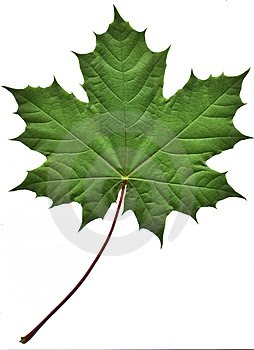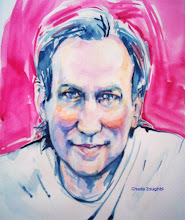International roots of African warfare
by Dr. Tukufu Zuberi, Chair and Professor of Sociology, University of Pennsylvania; host, PBS’ 'History Detectives'
from HuffingtonPost.com
The International Side to War in AfricaI recently tried to explain to a friend why Africa had so much war from a combination of domestic and international pressures. The domestic African causes of war are obvious; however, it was difficult to explain the international roots, and these words are an attempt to show how these hidden roots in Africa are not simply artifacts of African incompetence.
If we recognized our common humanity, the continent of Africa would be the mother that keeps giving, overworked and underappreciated. Yet there are those who continue to marginalize this important continent in considering real motivations in international relations.
It is in Africa that humans first experienced life and civilization. During the eras of colonialism, the greatest world crisis occurred in Africa. This was true from the period of the Roman Empire to Great Britain, and from the defunct United Soviet Socialist Republics to the sole world power of today -- the United States of America with China close on its heels.
Berlin Conference divided continent in 1884The 1880s were the heyday of European imperialism when Africa had only a few nation-states. During this period of colonial rule, African traditions of place and identity were greatly altered by the European colonial masters, and restructured along political lines drawn in Europe for the benefit of the colonial powers. It was at the Berlin Conference held in 1884 that the lands and riches of Africa were divided by and allocated to the Western colonial European states. Africans had no say in this new imperial world that left them servants of the world, and as usual for people in such a situation, Africans were left poor, hungry, unhealthy, and uneducated.

Despite all these interventions, the collective consciousness of Africa possesses hope and patience that proved significant in 1957 when the people of Ghana ignited an independence movement that spread throughout the continent. This movement declared a new African voice in the world, and so many nations had gained independence that the United Nations declared 1960 the Year of Africa.
It has been a long time since Ghana's historical movement, and today the average person in the US knows Africa more for famine in Somalia, genocidal acts in Rwanda, war in Libya, and the Arab Spring that took place largely in North Africa.
Some may read this and think, "Why should I care about what's going on in Africa?" It is not unusual for Africa to be dismissed as of little consequence, and forgotten.
It is worth remembering that African independence was frozen in the middle of the Cold War, with coup d'état after coup d'état in the struggle to choose sides (USSR or USA), while African leaders were hard pressed to represent the interest of the average African citizen in a context that demanded international allegiance.
The methods those in power used to confront the challenge they saw in African independence were despicable and fraudulent beyond calm expression. Political assassination, rape, torture, and genocide have marked the progress of Africa's integration into the New World Order. The only way the world has been able to justify this calamity is by changing the subject once the issue is clearly placed on the table. With the dirty deed done, politicians and the public shift their focus onto the next issue, and ignore the aftermath of these atrocities.
A few will remember the events in 1960 that found the newly elected Congolese prime minister, Patrice Lumumba, inviting the "neutral" United Nations to the Congo. The newly declassified documents show that Lumumba ended up being completely destroyed by the United Nations and its Western allies, especially the United States and Belgium. In continuation of this historical reality, we read of recent events in Cote d'Ivoire, where the United Nations and its Western allies, especially the French, have removed President Laurent Gbagbo from power.
Here, in the year 2011 the United Nations has authorized the use of military intervention in Cote d'Ivoire and Libya. In both cases, rebel efforts to make regime change were successfully supported with bullets and bombs by the United Nations and its Western allies.
It seems clear that in cases of political conflict the UN has become an instrument of the West. In simple terms, the UN tends to ignore the leadership of Africa in finding solutions to African problems. The African Union time and again has challenged the actions of the UN and NATO in Libya.
I do not want to suggest that Africa does not need the assistance from the UN or the West, nor is the continent about to collapse. But help needs to be more based on Africa's interest, rather than the strategic interest of the US or any other non-African entity.
Current U.S. foreign policy in Africa is a blueprint for disaster. The newly created U.S. Africa Command (AFRICOM) mission is to fight terrorism, and guide military intervention when U.S. interests are at stake. This current initiative is known as the Trans-Sahara Counterterrorism Initiative (TSCTI). Strategic interest refers to Africa's vast natural and mineral resources. Some estimates suggest that African oil will account for as much as 25 percent of U.S. needs by 2015. So, it is not difficult to see why Libya is strategically important to the U.S.
The view of Africa as a pawn on a chessboard is possible when you have as much power as the U.S.; however, it is not a policy that will assist Africa in overcoming the legacy of colonialism, or to become more responsive to the needs of its own people. Even if we believe that the residual wealth from economic trade with the U.S. is a benefit in and of itself, the only way for Africa to advance beyond the legacy of mal-intervention is by representing the interest of Africans.
African societies that represent the interest of the people are the solution to the problems. The organization of these African states will be the pillar that would prevent the associated dislocation of the citizens and the disruptive impact of Africa's relationship with the world.
Perhaps we would benefit from considering the problems of Africa as resulting from the impact of being relegated to the sidelines of empire and the fights of the Cold War. The question is how long the legacy of these malformations is going to serve as obstacles to African democratic and economic progress. The real challenge is for the leading nations in the New World Order to help other nations develop liberty, justice and human rights.
Follow Dr. Tukufu Zuberi on Twitter:
www.twitter.com/TukufuZuberi





























